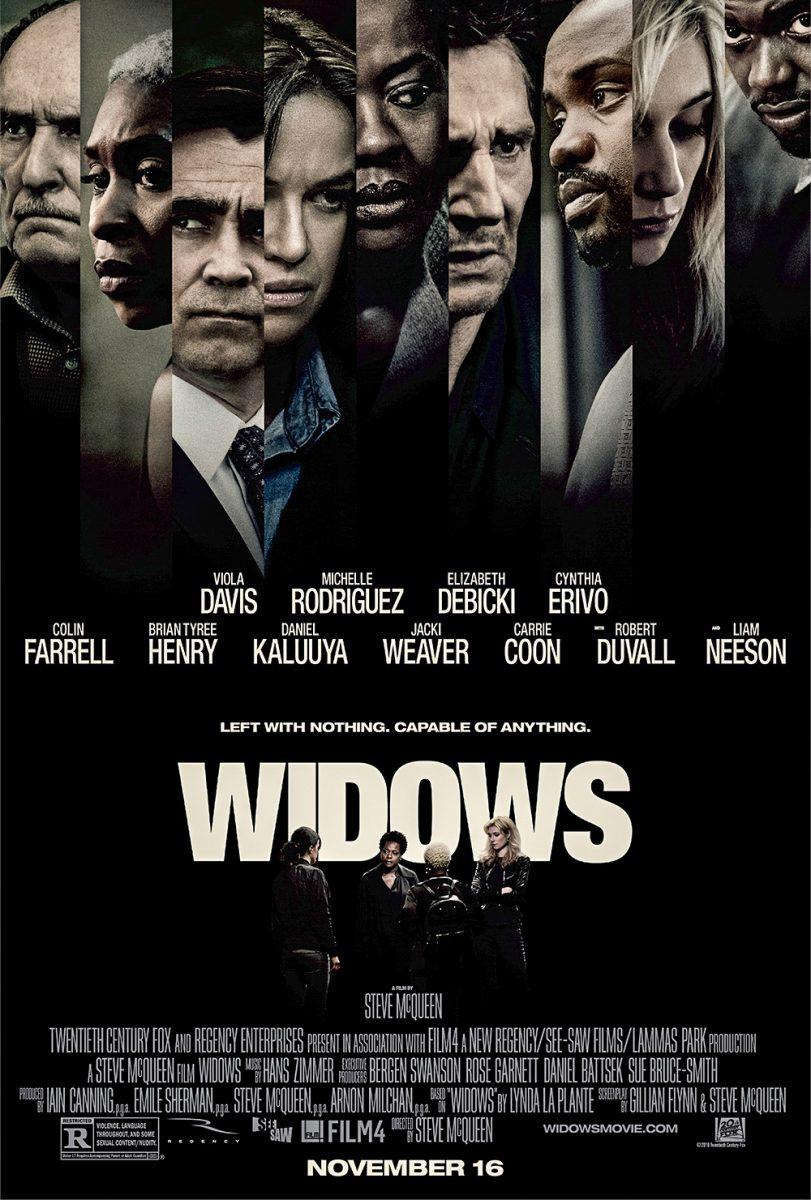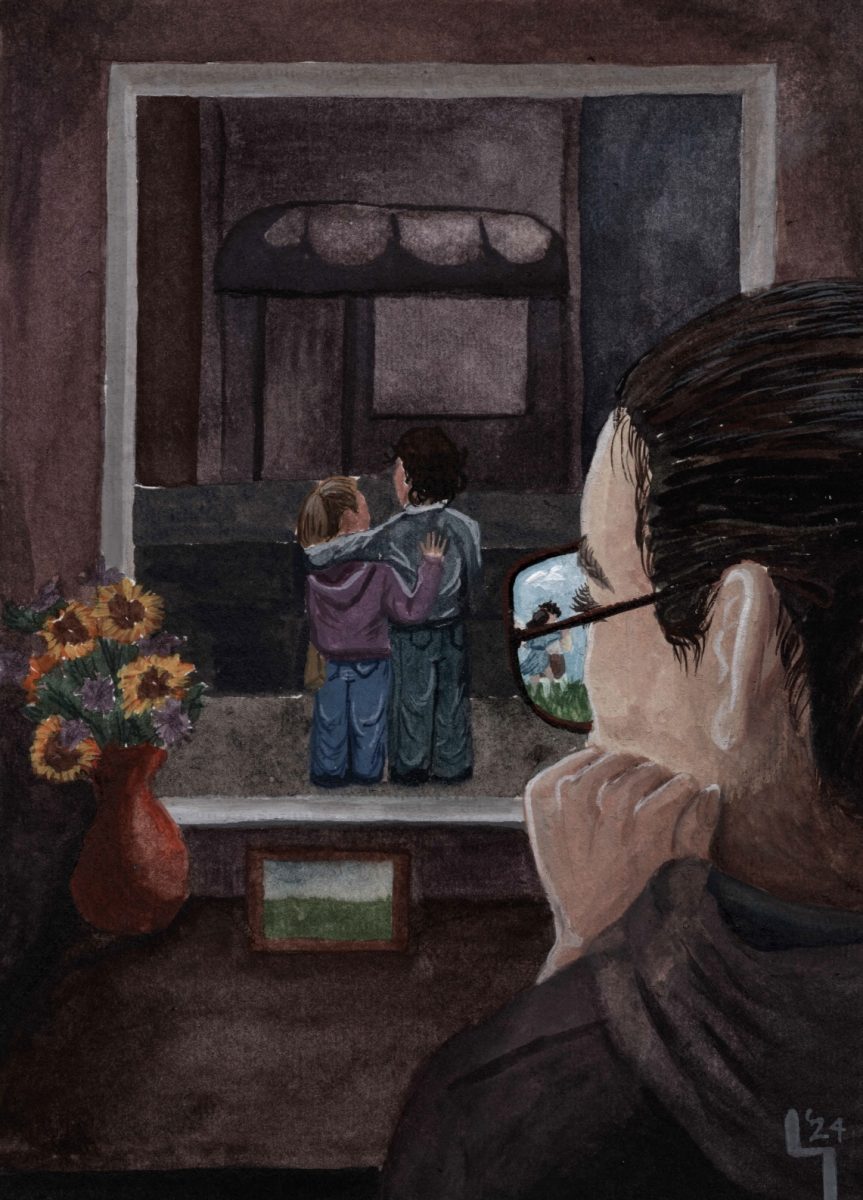Despite its star-studded ensemble cast and Academy Award-winning director, “Widows” is strangled by a lack of coherence.
The film attempts to weave multiple characters and subplots together into one overarching narrative, but the final product leaves many unanswered questions and multiple incomplete storylines. The performances of the cast, despite their two-dimensional roles, brings a consistency that grounds the otherwise incongruous film.
“Widows” is Steve McQueen’s latest film since his 2013 hit, “12 Years a Slave,” won the Oscar for best picture. McQueen began his career directing a multitude of short films in London and went on to win the Caméra d’Or award at the 2008 Cannes film festival for his first feature length film, “Hunger.” McQueen turned his early success into a successful career in the American box office, and this allowed him to direct his passion-project, “Widows.” However, despite the filmmaking ability of McQueen, the film feels incomplete. “Widows” is adapted from the British television show of the same name, and the immensity and complexity of the television plot doesn’t translate positively to the big screen.
The film follows the storyline of three widows after their husbands die in a botched heist. The women must repay the debts of their late husbands or risk their lives and the lives of their families.
Alongside the main storyline, many separate plotlines begin to emerge and slowly weave their way in and out of the main plot. These subplots include anything from a local election between a reformed gang member and the incumbent’s pampered son to a woman coping with the abuse of her mother and husband.
Although the plot lines are successfully woven into the main story, the sheer quantity causes the film to become boring and begin to drag on. Despite this, most of the subplots aren’t even explored once they cross into the main story. McQueen abandons the plotline or conveniently, even comically at times, resolves the issue. Having these subplots does not inherently inhibit the film, but McQueen’s rushed, underdeveloped approach makes it difficult for the audience to distinguish between important and frivolous plot points.
Despite the overabundance of subplots, the ensemble cast injects life to every scene, and each cast member shines in their respective roles. Viola Davis is fantastic in her role of Victoria, and her struggle to cope with the loss of her husband as she tries to pay back his debts is certainly one of the best of her already illustrious career. Michelle Rodriguez is no stranger to the action genre, and her role as Linda feels the most natural of anyone on screen.
Colin Farrell, who plays the spoiled successor of a corrupt political machine, is the most realistic character of the whole film. His role as Jack Mulligan is the focal point of McQueen’s underlying politically charged message, and the parallel between his character and the current political climate is the most potent message of the film. Another standout is Daniel Kaluuya as Jatemme Manning, the brother of the candidate running against Mulligan. Kaluuya, who starred in Jordan Peele’s “Get Out” and appeared in Ryan Coogler’s “Black Panther,” is quickly making name for himself and continues to show off his brilliant range as an actor.
Overall, the film is a nice addition to the heist genre. McQueen fails to successfully complete his complex narrative, but the film is still full of many twists and turns that are to be expected in a heist film. While it’s certainly not on the level of the greats of the heist genre like Jules Dassin’s “Rififi,” Jean-Pierre Melville’s “Le Cercle Rouge” or Michael Mann’s “Heat,” the film will no doubt satisfy both fans of the genre and admirers of McQueen’s previous works.
Rating: 3.5/5
Widows: An overabundance of subplots
November 25, 2018
0
Donate to The Battalion
Your donation will support the student journalists of Texas A&M University - College Station. Your contribution will allow us to purchase equipment and cover our annual website hosting costs.









